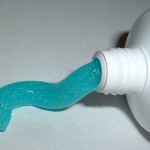Plastics are polluting our waterways
January 26, 2017If you’ve seen The Graduate, you might remember the immortal words of Mr. McGuire to Benjamin Braddock: “There’s a great future in plastics.”
In the 50 years since that movie’s debut, it’s become clear that those were wise words — at least from an investor’s point of view: Civilization has become addicted to plastic. And while it’s made our lives wonderfully convenient, the ubiquitous substance has become a monumental problem as well.

One of the many places where that problem continually becomes apparent is in our oceans. Sea turtles and other animals get caught in six-pack rings, often leading to a horrible death or disfigurement. And plastic trash is found in the stomachs of birds, whales, sharks and fish. In fact, a study last year discovered plastic in one third of all fish caught in Britain. That included widespread contamination of cod, haddock, mackerel, shellfish, tuna, mullet, mussels and oysters — and much of that contamination is making its way up the food chain, because these are all fish that end up on our plates.
The largest culprit by far were microbeads: those tiny round beads found in some toothpastes, shower gels and beauty products.
The contamination is seen locally, too: Just take a walk along any stream, spring, river or other body of water, and you’ll see plastic bottles, bags, fishing line, bait containers and more in the water and along the shoreline.
What can we do about it? Plenty. We can all commit to using reusable bags for grocery shopping, and recycling plastic bags properly those times that we don’t. We can pledge to stop using products with plastic microbeads in them — just look for ingredients such as polyethylene, polypropylene, tereflalato polyethylene, polymethyl methacrylate and nylon, which are all used in microbeads.
You can easily create your own natural alternative — just follow this advice from Mother Nature Network: Fill a clean, reusable spice shaker with your choice of ground oats, poppy seeds, sugar, cranberry seeds, fine ground coffee grounds, walnut shells or apricot shells. Store the spice jar in your bathroom. Shake a small amount into your regular soap lather, and scrub gently when you need to exfoliate. The spice jar keeps your scrub clean and dry. You can also use baking soda, corn meal and sugar to make exfoliants.
Another thing you can do is to try to avoid buying drinks in plastic bottles. It’s not going to be easy, but if you look hard enough you can find alternatives that are bottled in glass.
Finally, if you do buy a plastic product, ensure that it goes into the recycling bin, not the trash bin, when its useful life has ended.
We probably won’t be able to eliminate the use of plastic in the world, but if we all try hard enough, we can ensure we cut down on plastic pollution considerably. It’s worth a shot — and it’s certainly better than the alternative.